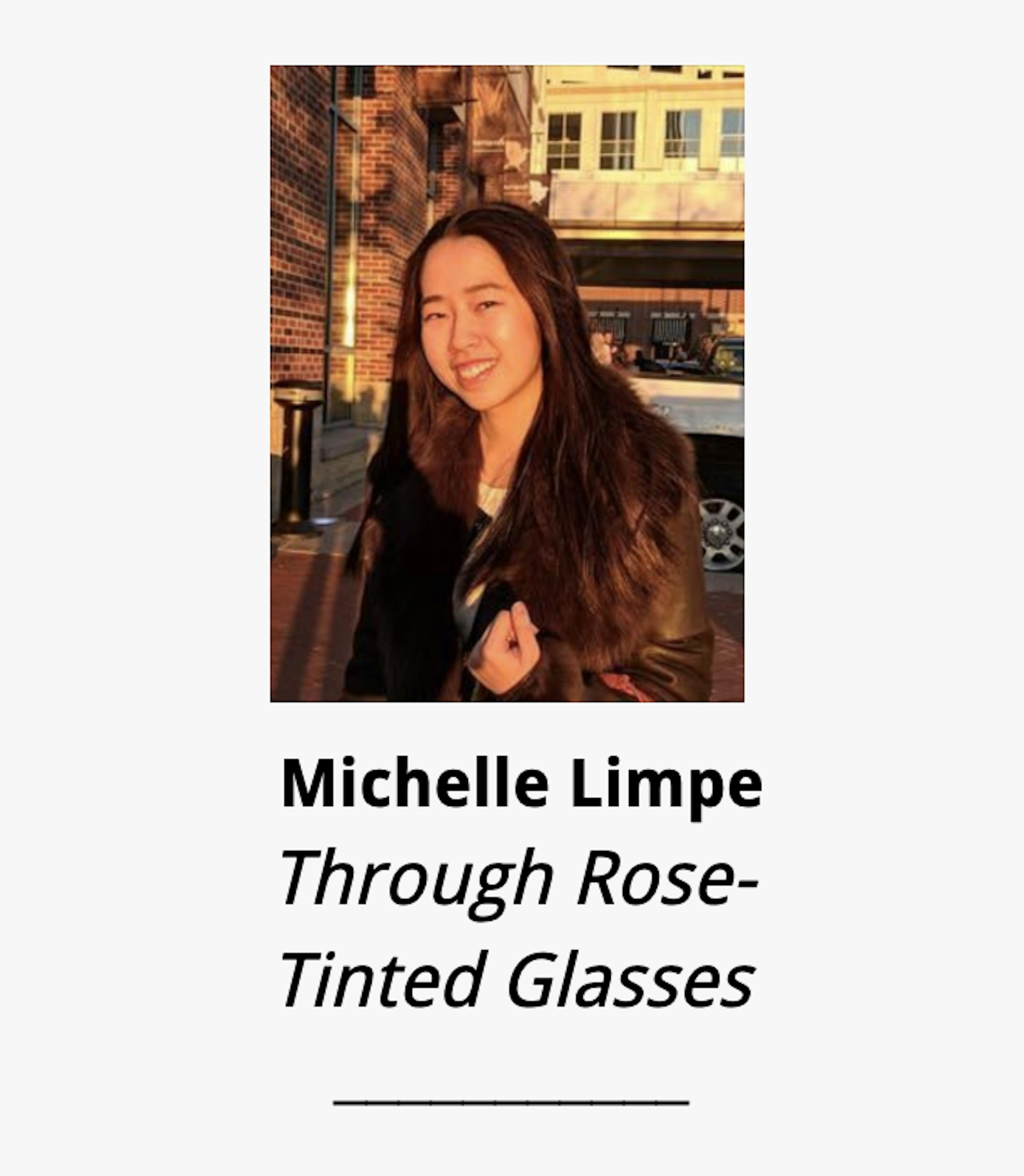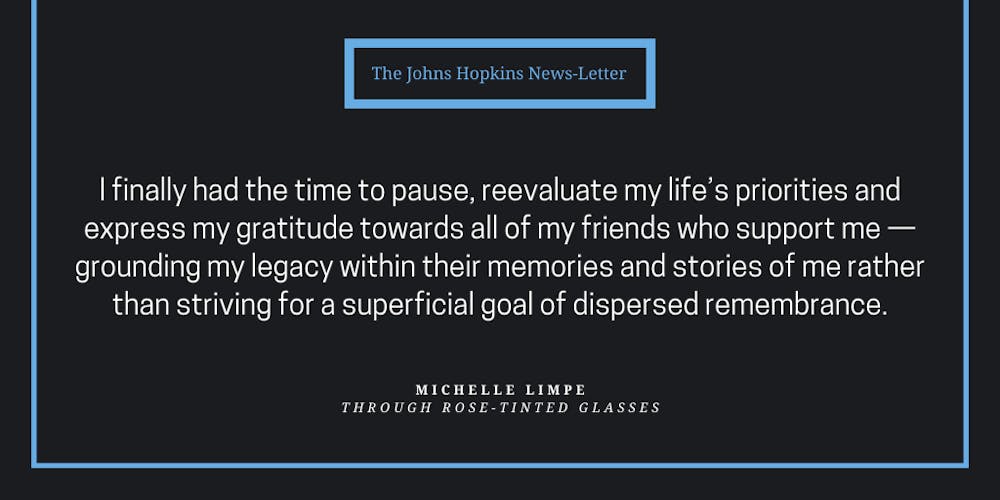
“What is your biggest fear?”
“Being forgotten.”
Probably a typical hot seat question, whenever this is asked of me during a late-night talk or an icebreaker game, “Being forgotten” has always been my immediate answer.
I never seemed to figure out why I’m so concerned by this fear — a constant mental struggle that has even overpowered my tangible, typically “normal” phobias such as snakes, pain and darkness. Day and night, even when I do not realize it, the fear of being forgotten brews in the back of my mind, acting as a motivator for me to push myself to do more and avoid failure at all costs.
Rationally I know that “being forgotten” is an inevitability. With over eight billion people on this Earth and millennia of generations past, I am ultimately just another number, another statistic in the world. My studies in Public Health, with its focus on population-level impacts and statistics, serve to strengthen this rationalization.
Unless I manage to become someone like Taylor Swift or the president of a country, no one is going to care about my achievements in college, where I secured my first job after graduation or my activities and extracurriculars after I am gone.
Still, alongside wanting to do meaningful work, I remained consumed by this desire to make an impact and be remembered for something, spurred on by the significant work of my ancestors.
In 2017, I had the opportunity of visiting my great-grandparents’ ancestral home in Xiamen that continues to stand today. As we were welcomed with a parade and flags bearing the Chinese characters of my last name, I was once again reminded of the impact of my family’s contributions, witnessing how their legacies were memorialized not only in physical structures but within the people who greeted us and generations that continue to benefit from their work.
It was easier for me to establish myself in my high school, but coming to Hopkins opened up even more opportunities for me to engage in society and figure out my place in the world. So I tried to find different areas to accomplish this: I joined The News-Letter and immortalized my name in my byline, I volunteered to create health programs for those in need and I gave talks about my experiences abroad to EducationUSA.
Despite this, I still overthink every decision I make and its impact on my future. I constantly worry about what I am going to accomplish next and how others see me. What will my legacy be? What even makes me unique, and what am I hoping to leave behind?
When I entered my last year at Hopkins, the whisperings of “legacy” grew stronger, as I struggled to determine my purpose while figuring out my next career moves. While my next steps in life beyond college were already set with different paths opening up for me, I could not seem to get my mind off of the present rather than looking to the future.
This past semester I felt like I was constantly trying to please others or adhere to some imaginary standard that I had set for myself. While my past bouts of overthinking may have been somewhat justified since I was working to set myself up for graduation, I still could not help but fixate on things that I knew would not matter in a few months.
But really at the end of the day, it’s not that deep. Yes, we can laugh at the comical saying, but it’s true... for the most part.
One random night during a spontaneous conversation on worries about legacy and the future, hearing my friends emphasize this seemingly trivial quote began to shift my mindset, alleviating some of the undue stress I had been putting on myself and helping me focus on what really matters.
Why have I been so caught up in what those around me think and other issues that will not matter in a few years, rather than focusing on spending time and making memories with friends and family? Why do I continue to worry about how I would be remembered among strangers instead of focusing on the loved ones who truly know me for who I am?
I began to see how my tendency to overthink had pervaded every aspect of my life from schoolwork to the paper to my relationships. When I begin to overcomplicate an issue, I now remind myself that it’s not that deep in an effort to look at the bigger picture and determine whether the emotional distress is really worth it in that situation.
While I still aim to make a difference wherever I go, doing so without the unnecessary pressure of having a “legacy” makes the act more fulfilling to me. One’s legacy does not have to be something flashy and iconic but is best exemplified through meaningful words and actions.
Over the past Thanksgiving break, I finally had the time to pause, reevaluate my life’s priorities and express my gratitude towards all of my friends who support me — grounding my legacy within their memories and stories of me rather than striving for a superficial goal of dispersed remembrance.
My fear of “Being forgotten” still hasn’t completely disappeared. It is difficult to completely shift my thinking away from what I had habituated myself to do all my life. But now when someone asks me “What is your biggest fear?,“ I hesitate to respond with my reflexive answer of “Being forgotten.”
While this is still and probably always will be a minor fear of mine, I instead choose to prioritize my energy towards addressing my fear of running out of time in order to make the most of it with people who truly matter to me.
Michelle Limpe is a senior from the Philippines studying Chemistry and Public Health. She is an Editor-in-Chief for The News-Letter. In her articles, she likes to reflect on finding the silver linings in life to give meaning to her struggles.





